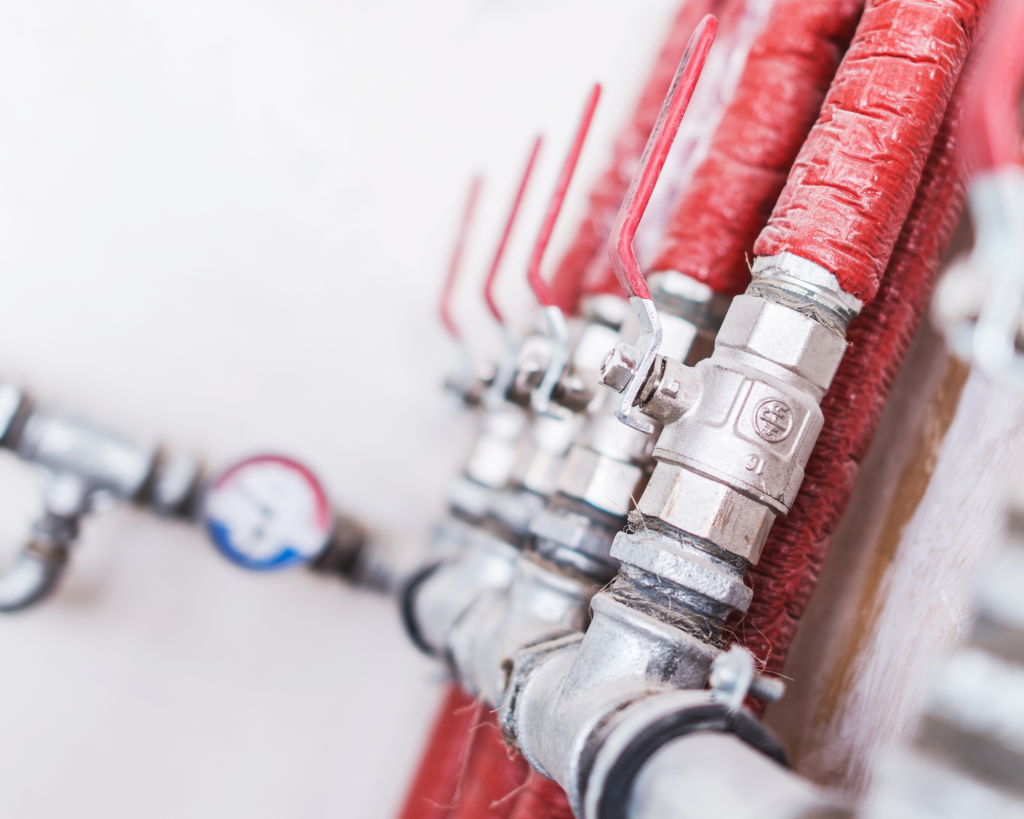Greetings all. Last month we completed our journey through the perils of Legionella risk assessments, this month we are switching gears somewhat and shifting our focus to Closed recirculating water systems.

Author
The article was written by Kris Rowland, our Head of Technical, Training and Compliance. Kris has more than 20 years of experience in the industry and is responsible for monitoring our clients’ compliance with the assets we manage on their behalf using ZetaSafe, our bespoke compliance monitoring tool.
Sign up to our newsletter
Keep up to date with the world of water treatment
What Is a Closed Water System
So where to start, well firstly we need to define what exactly is meant by a ‘closed recirculating water system’? Personally, I think a good definition of a closed recirculating water system would be a system which is designed to be filled once and recirculated without any significant volume of ‘make-up’,
usually falling into two main categories, those of heating and chilled water systems.
However, most of us who frequently work or advise on closed recirculating water systems will know that in the majority of cases that definition does not fit the systems we routinely see, in many cases systems are being topped up far more regularly than they are designed to be and in turn this can lead to many of the common problems we find in all water systems, those being scale formation, oxidation, chemical fouling and microbiological fouling.
When discussing the effects of these contaminants with ‘end-users’ I always find it helpful to use an analogy and in the case of closed recirculating water systems I like to compare them to our human bodies, just as a closed recirculating water system has a pump, circulating fluid, circulating system and heat exchange surfaces so do our bodies in the form of the heart, blood, blood vessels and epidermis. When atheroma’s (fatty deposits) build up in our arteries then our blood pressure increases putting a strain on our heart and the same is true of closed recirculating water systems in that when deposits (ie, carbonate scale, oxidation debris, foulants) build up in system pipework restricting flow, then increased pressure can be placed on the recirculating pump leading to a failure.

What Are The Main Problems Affecting Closed Systems?
- Scale Formation
- Chemical Fouling
- Microbiological Fouling
- Corrosion
- Erosion
If we continue to introduce untreated water on a regular basis into our closed recirculating water systems then we increase the chances of this scenario occurring, as mains supplied water generally has all constituents required to kick start corrosion, scale formation and microbiological fouling. Once one of these common water issues has a ‘foot hold’ then it is likely that the other common problems will not be far behind as very easily scale formation can lead to corrosion cells forming or microbiological activity can result in physical corrosion.
Erosion In A Closed Water System
Another common water related issue we find in closed recirculating water systems is that of erosion, not to be confused with corrosion. As where corrosion can be defined as ‘the loss of metal from a component or system due to an electrochemical reaction with its environment’ then erosion is ‘the removal of material from a surface by means of a mechanical transport of solids’, one process is electrochemical where the other is physical. However one can very easily lead to the other, imagine a closed recirculating water system where corrosion has started to occur, the material liberated from the metal surfaces can very easily be carried by the flow of water and begin to wear away areas where the flow direction changes such as elbows in pipe work which over time can lead to a thinning of the walls and eventual impingement as these metal surfaces exposed by erosion are generally more reactive and will fall prey to oxidation at an increased rate – especially where a variety of metals are present within the water system due to galvanic effects.
Why You're Probably Corroding Your Water System Faster Than You Think
Many closed recirculating water systems experience galvanic issues due to their design, construction and/or commissioning. Very often materials are selected without consideration of their individual reactivity and as a result of being significantly distant in their order of reactivity will start the corrosion process if the system is not commissioned correctly again leading to premature corrosion and erosion. Over recent years it has become more popular to use materials such as plastics in closed system design in an effort to reduce corrosion of the water system, however what is often overlooked is that not all of the water system can be constructed from these non-corrosive materials. Assets such as heat exchangers, pumps and valves are constructed from metals such as Copper, Steel and Brass, without the pipe work to spread out the corrosive potential of the water all of the corrosive activity is focused in these areas generally increasing the rate at which these crucial assets fail and leading to repair costs much earlier in the life-cycle of the water system than anticipated.
Managing A Closed Recirculating Water System
So, with the above in mind it’s clear that to be effective treatment and monitoring of closed recirculating water systems should be started as early as possible in the life-cycle of the system and make-up of raw ‘mains’ water should be kept to an absolute minimum.
But how can we manage a closed recirculating water system where these issues have begun to appear? Well we will be looking at specific treatment techniques in our next article, until then if you have found this article of interest and would like to do some further reading then I would encourage you to find and look through BSRIA’s guidance on closed recirculating water systems, those being BG29/2021 and BG50/2021 where much of what we have briefly discussed is greatly expanded on.
If you need any assistance with your closed water systems, reach out to our team of experts here today!

Knowledge Is Key!
Knowledgeable and competent staff can save your organisation thousands in premature repair costs due to incorrect closed loop water systems management. Enquire today to find out if Closed Systems 101 is right for you. Our comprehensive course on closed water systems provides you with the background knowledge needed to work on these systems. You will learn about their requirements and functions, as well as guidance for working with them from regulators such as the Health and Safety Executive (HSE) and Building Services Research Information Association (BSRIA).










